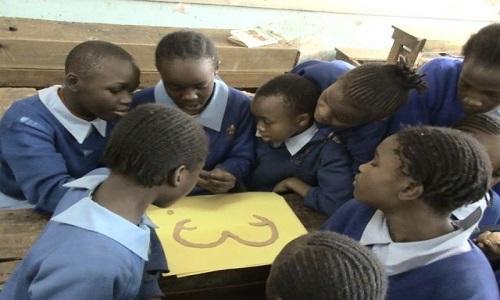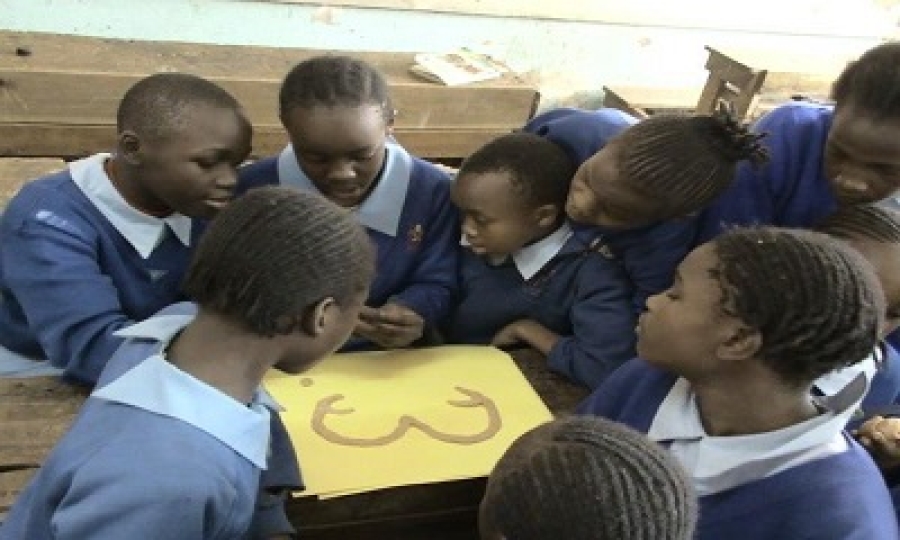The Nature of Science: Why Teach Science to Children?
By: Thuo Karanja
TEACHING SCIENCE offers children a lot of knowledge and information that helps them understand how and why things work as they do. Science can explain the mechanics, processes and reasons behind the daily functioning of the many things that fascinate children. Such include toys, cars, their bodies, aeroplanes, phones, radios, and many other complex systems. Science helps to provide physical or visible evidence of many facts children encounter, read about in books and on the internet or see on the television; this helps to increase understanding and helps them to retain that information.
A strong foundation in scientific knowledge and methodologies can teach children essential skills like thinking clearly and logically, possessing an open and inquiring mind, and problem-solving skills and help them solve simple and practical problems.
It can also help them develop physical skills, especially in handling things. Children can also use this knowledge to understand new concepts, make well-informed decisions, and pursue new interests.
Science is the application of human intelligence to figuring out how the world works. Through science, man has discovered many valuable things that have made life much easier. Such include technologies for transport, farming, communication and building and medicines and drugs for many diseases. However, science such as nuclear warfare and uncontrolled industrial development that leads to overexploitation of natural resources and pollution continues to harm and worry human beings.
Science education in the 21st Century should prepare children for the future: confident, self-directed learners, concerned citizens, and active contributors able to thrive in and contribute to a world which is constantly changing. Science education should not just involve teaching learners basic concepts and facts of science. It should also equip them with other skills, including ethics and attitudes, to use that scientific knowledge and be aware of how science influences their lives and shapes their environments. Science education should therefore take a prominent place in any curriculum.
Children at different stages have different abilities, and their thinking develops as they grow. Children are curious about things from birth. Indeed curiosity does not need to be taught. An infant can hold objects, follow moving objects with their eyes, trace the source of a sound, and discover the relationship between their mother's breast and feeding; to feed; they have to suckle.
This learning goes on in stages such that by the time a child is ready for school, they already have a great deal of rudimentary scientific knowledge to recognise properties and characteristics such as size, colour, and even group (classify) objects. At higher levels, they are capable of more complex scientific skills.

LEARNERS ENGAGED IN A SCIENCE ACTIVITY
Science is a 'doing subject', and children like ‘doing’ things. Taught well, most children find science extraordinarily inspiring and exciting. Children should enjoy ‘doing’ science. Well-planned science lessons enable learners to develop understanding and form questions based on their knowledge and the insight they wish to gain in the future.
Teachers of science need to realise that learners, through their formal and informal interaction with the natural and the design world, children already have developed ideas about most phenomena they learn in school. They already have explanations (sometimes misconceptions) for many objects, events and organisms in their immediate world. However, while most of these conceptions are scientifically inadequate, they influence the formation [learning] of new and proper scientific concepts.
Science lessons should be planned with activities that allow learners to do things, talk, discuss, ask and answer questions. Such activities are expected to be in line with the curriculum, not 'activities for activities' sake and can assist learners in clearly linking and understanding concepts being learned. Indeed, learners who excel in science lessons will likely develop a strong ability to think critically.
Latest from Esther Nyambura
- CEMASTEA Hosts Successful INSET Centre Principals’ Workshop
- CEMASTEA Conducts Successful Holistic Learning Training for Rwandan Teachers
- Empowering Quality Standards and Assurance Officers (QASOs) for Enhanced STEM Education
- Science and Mathematics Teachers Pilot Symposium: Innovative Classroom Practices
- CEMASTEA Strategic Plan 2023 – 2027: Key Highlights

